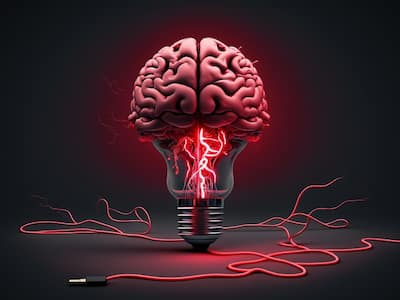
Hot flashes during menopause are not just uncomfortable; they may also signal a potential risk factor for Alzheimer’s disease.
Menopause is a significant phase in women’s life that insinuates the end of reproductive years. It occurs in a woman’s late 40s or early 50s when ovaries gradually stop producing eggs as well as hormones like estrogen and progesterone. This comes with a cornucopia of problems that range from physical to emotional symptoms including hot flashes, mood swings, and sleep disturbances, these changes take place along with other bodily changes. However, the recent concern is the link between hot flashes and Alzheimer’s disease. Research shows that menopause is a time when women have the risk of developing Alzheimer’s disease creating more complications. Hot flashes are a feeling of warmth that spreads across the body causing sweating and rapid heartbeats. It can last up to seconds or minutes and can impact women’s daily lives. Research presented at the 2023 Annual Meeting of The Menopause Society in Philadelphiahas linked menopause with Alzheimer’s disease. Hot flashes especially those that occur during night sleep can lead to poor brain function.
Let’s look at some of the findings that clarify the link between Alzheimer’s disease and menopause!
Hormonal Changes And Brain Health
Theories suggest that the hormonal changes that occur during menopause can lead to a decline in estrogen levels which becomes one of the significant reasons for the increased risk of Alzheimer’s disease. Estrogen is said to possess neuroprotective properties that help in managing brain function but the sudden reduction of estrogen levels can make the brain more vulnerable to Alzheimer’s disease.
Vascular Health
Hot flashes can also lead to changes in blood vessels and blood flow regulation. These changes may affect the brain’s vascular health, potentially contributing to Alzheimer’s disease, which is characterized in part by impaired blood flow in the brain.
Disrupted Sleep Patterns
Hot flashes can disrupt sleep patterns can lead to poor quality sleep and sleep deprivation that can eventually impact your brain health. Sleep disturbances are often linked with cognitive decline and hot flashes make it more apparent during menopause, increasing the risk of Alzheimer’s disease.
Triggered Inflammation
Inflammation can be triggered because of hot flashes. If the inflammation is chronic, it can lead to a higher risk of Alzheimer’s disease.
READ RELATED: 5 Best Strength Workouts for Women To Lose Weight
While these researchers have found certain links between Alzheimer’s disease and menopause still there is no satisfactory proof to verify the information. However, women experiencing menopausal symptoms can take care of the signs to reduce the long-term risks of menopause. Here are some of the recommendations for women entering or going through menopause!
Medical Guidance Is Imperative
If you experience hot flashes during menopause then it is best to seek guidance from a healthcare provider who can further evaluate your symptoms and help find the solution. Don’t hesitate to discuss it, procrastinating will make it more complicated.
Focus On Healthy Lifestyle Choices
Focus on maintaining a healthy lifestyle, which includes regular exercise, a balanced diet, and stress management. These practices can support brain health and reduce the risk of Alzheimer’s disease.
Address Sleep Disturbances
Sleep disturbances are quite closely linked to Alzheimer’s disease. Hence, it is necessary to address sleep disturbances associated with hot flashes. Practicing good sleep hygiene and seeking treatment for sleep disorders can improve your sleep quality and potentially reduce Alzheimer’s risk.
Total Wellness is now just a click away.
Follow us on
Don’t Miss Out on the Latest Updates.
Subscribe to Our Newsletter Today!
window.addEventListener(‘load’, (event) => {
$(‘#commentbtn’).on(“click”,function(){
(function(d, s, id) { var js, fjs = d.getElementsByTagName(s)[0]; if (d.getElementById(id)) return; js = d.createElement(s); js.id = id; js.src = “//connect.facebook.net/en_US/sdk.js#xfbml=1&version=v2.3”; fjs.parentNode.insertBefore(js, fjs);}(document, ‘script’, ‘facebook-jssdk’));
$(“.cmntbox”).toggle();
});
});






